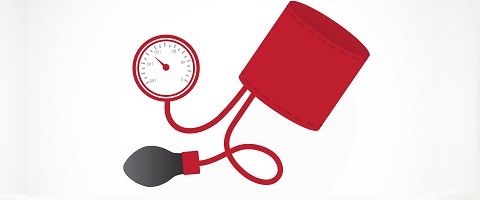
South Africa has one of the highest rates of hypertension in the world, with 6.3 million people living with the condition. Here’s everything you need to know about this silent killer.
What is hypertension?
Hypertension or high blood pressure is a chronic medical condition in which the pressure within the arteries is consistently elevated. It is often called the "silent disease" as it has no symptoms and can go undetected for many years.
Why is blood pressure important?
Blood pressure is essential to life. The pressure of the blood in the arteries is necessary to keep blood flowing throughout your body. This is needed to provide oxygen and energy to your organs.
How does hypertension affect the body?
If you have hypertension, the walls of the larger arteries lose their elasticity and become rigid, and the smaller blood vessels become narrowed. As a result, your heart must work much harder than it should to pump blood throughout your body. This pressure enlarges your heart and your arteries become scarred and hardened.
Over time, your heart may not be able to adequately transport blood through the arteries, causing damage to your heart, blood vessels, kidneys, eyes, brain and other vital organs. This can increase your risk for heart attack, stroke, kidney failure, dementia and eye disease (glaucoma and blindness).
If uncontrolled, high blood pressure may lead to premature death.
Who gets hypertension?
High blood pressure most commonly affects people who:
- Have a family history of high blood pressure, heart disease, or diabetes.
- Are black.
- Are older than 55 years of age.
- Are overweight or obese.
- Are not physically active.
- Drink alcohol in excess.
- Smoke.
- Eat foods high in salt and fat.
- Use the contraceptive pill.
- Use over-the-counter medication such as anti-inflammatories, antidepressants, and decongestants.
- Use recreational drugs such as cocaine and ecstasy.
Lower your blood pressure
Eat well
- Follow a healthy, balanced diet with small, regular meals.
- Eat a variety of fresh fruits and vegetables. Aim to have at least five servings a day.
- Reduce your salt intake to no more than five grams (one teaspoon) of salt a day.
- Use fresh and dried herbs, spices, garlic, or lemon juice to add flavour to food without adding extra salt.
- Stay away from processed and fast foods.
- Choose low-sodium food options and low-fat dairy products.
- Eat wholegrains, legumes and high-fibre foods daily.
- Opt for lean meats, such as chicken and ostrich.
- Limit unhealthy saturated and trans fats found in baked goods and deep fried foods, and replace it with healthier unsaturated fats such as nuts, seeds, and avocado.
- Eat fatty fish, such as sardines, pilchards and salmon, at least twice a week as they contain heart-protective Omega-3 oils.
Stop smoking
Both active and passive smoking causes damage to the heart and blood vessels. It constricts and narrows your arteries, raising your blood pressure and heart rate. This can increase your risk for heart disease and other health complications. If you're a smoker, stop. If you're not a smoker, don't start. Stay clear from all tobacco products, and avoid any activities, people or places associated with smoking.
Avoid excess alcohol consumption
Alcohol raises your blood pressure and reduces your heart's pumping ability. It can also interfere with the effectiveness of blood pressure medications. If you consume alcohol, limit your intake to no more than one drink a day for women and two drinks a day for men.
Exercise regularly
Regular physical activity is a drug-free way to lower your blood pressure to safer levels. Even small amounts of modest exercise can make a big difference. Exercise is also key to maintaining a healthy body weight, which is an important element in managing high blood pressure. Aim to exercise for at least 30 minutes a day, five times a week. Walking, jogging, cycling, swimming and dancing are good ways to nudge your blood pressure down a few points.
References:
http://www.hypertension.org.za/#GeneralInfo; South African Hypertension Society (Online) Accessed w/c 2 May.
http://www.heartfoundation.co.za/blood-pressure; The Heart and Stroke Foundation South Africa (Online) Accessed w/c 2 May.
http://www.health24.com/Medical/Hypertension/About-hypertension/Hypertension-20120726; Health24 (Online) Accessed w/c 2 May.




 Publications
Publications
 Partners
Partners














